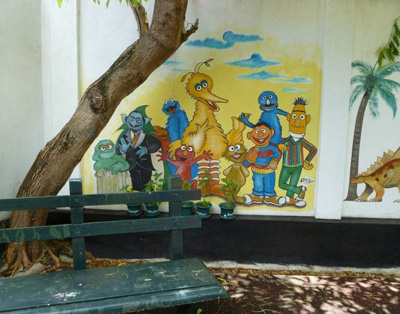Have you ever ‘put in a good word’ at your workplace for a family member or friend? Or asked such a favour from your nearest and dearest? And how about ‘mates rates’? Ever been able to get something quicker or cheaper because of a powerful associate?
What harm does nepotism and cronyism do? The parents of 47 toddlers killed in a nursery in Mexico paid the highest price in 2009, when safety inspectors turned a blind eye to dodgy building work in a nursery because it was owned by the wives of two local officials. 10 days later, a fire spread from a neighbouring warehouse and quickly filled the area between the nursery’s high roof and the tarpaulin ceiling. But with fire alarms installed only below the tarpaulin, nothing alerted staff until it collapsed.

The story of the fire in the Mexican nursery shows us nepotism and its potentially devastating effects must be taken seriously
This is why Transparency International fights against what is perhaps the most common and widely accepted form of corruption:
A form of favouritism based on acquaintances and familiar relationships whereby someone in an official position exploits his or her power and authority to provide a job or favour to a family member or friend, even though he or she may not be qualified or deserving.
While the effects of ‘everyday nepotism’ are perhaps less visible than this tragic incident, they are no less damaging to society overall: poor quality public services and incompetent employees in both the public and private sector, to name a few.
This creates a domino effect which ultimately keeps the most disadvantaged in society disadvantaged. Take the hypothetical example of a local government official granting a construction contract to her brother’s company – which turns out to be inexperienced and understaffed – which results in poorly built roads being left unfinished – which makes accessing healthcare, food supplies and other resources near impossible for local people.

Nepotism: stifling social mobility and creating yet another hurdle for young people trying to break into the job market?
Nepotism also continues to be common practice in western European countries; in 2011 young people in Portugal demonstrated against corruption. Many of the protesters were well educated job seekers, unable to penetrate a job market where hiring by merit is not standard procedure. The UK is another case in point, where problems surrounding social inequalities are no secret. With a combination of the financial crisis causing unemployment rates across Europe to hit an all time high and the rise in university tuition fees in 2010, the future of young people in Britain has never been less certain.
In response to this, there is a fierce debate in the UK as to whether handouts from those in positions of power to family or friends are ensuring that young people from backgrounds where their relations cannot provide such assistance stay at the bottom of the ‘social ladder’.
The UK is no stranger to family favouritism within politics either, and other liberal democracies are even worse; take the nepotism engrained in the political dynasties of the US and Japan. History shows us these trends breed low voter turnouts and general public mistrust in government. This mistrust turned to anger and revolution during the Arab spring when the people overthrew elitist governments who favoured ‘their own’ such as Gadaffi’s Libyan Arab Republic.
While the effects of some acts of nepotism may be worse than others, each and every one of us must refrain from favouritism in order for the global fight against corruption to be won. If we ‘put in a good word’ for family or friends, we have no right to criticise those safety inspectors in Mexico because our actions are the same. While the direct consequences of their behaviour may be easier to see, morally speaking there is little difference.
Have you ever experienced nepotism? Or been its victim?
Can we stop it, or is it human nature to favour those you have personal relationships with?
Carousel image: Flickr / Creative commons: allensima















 Connect with us on Facebook
Connect with us on Facebook Follow us on Twitter
Follow us on Twitter